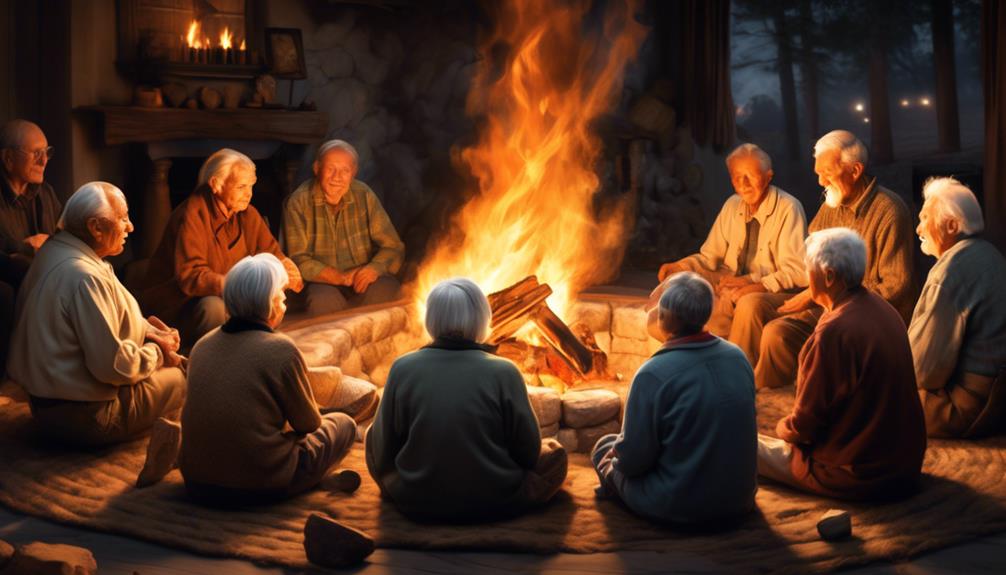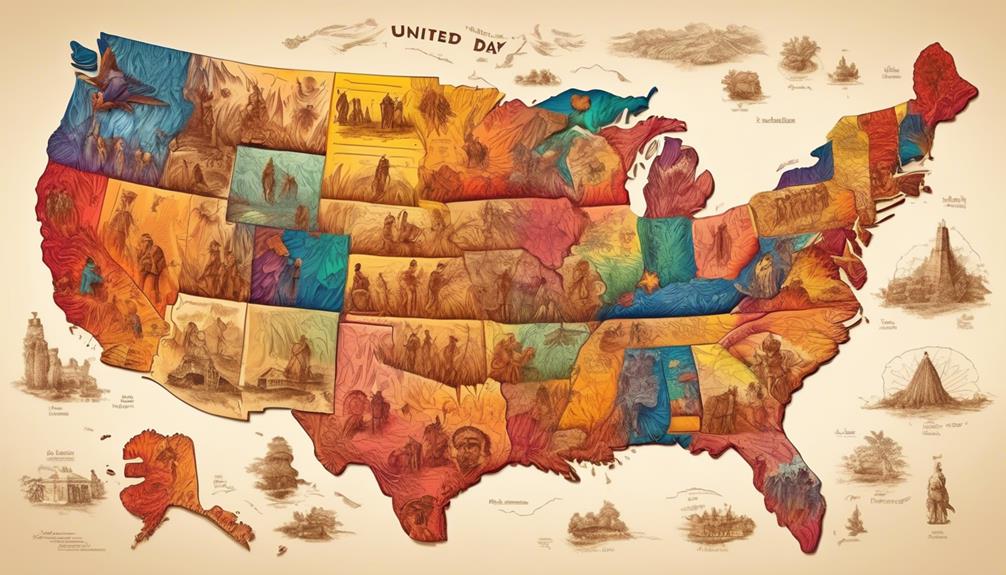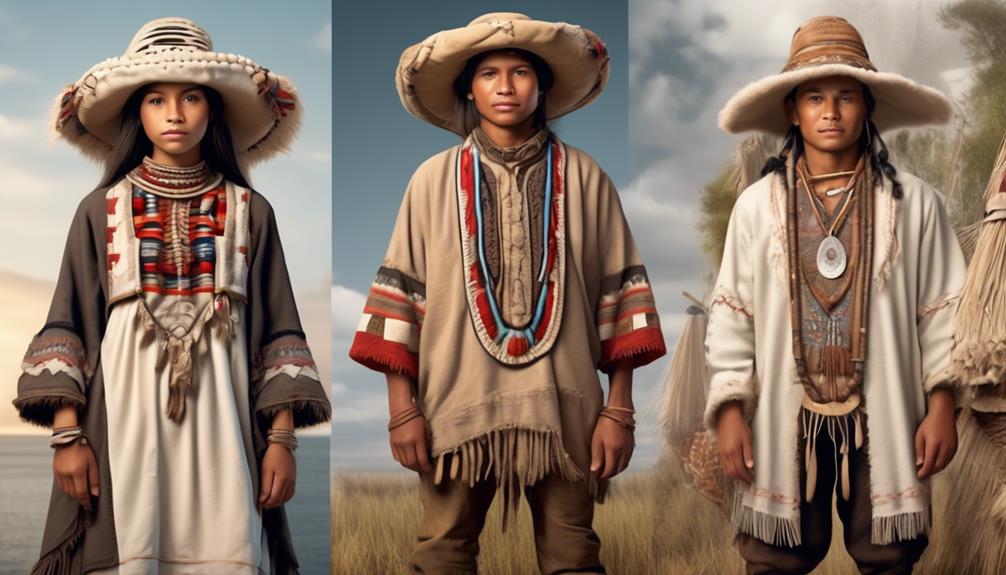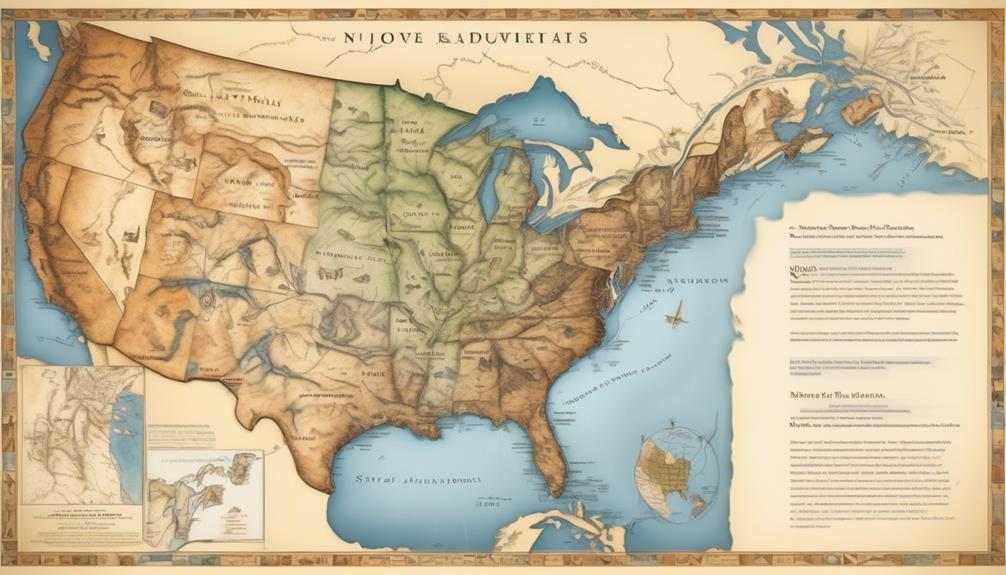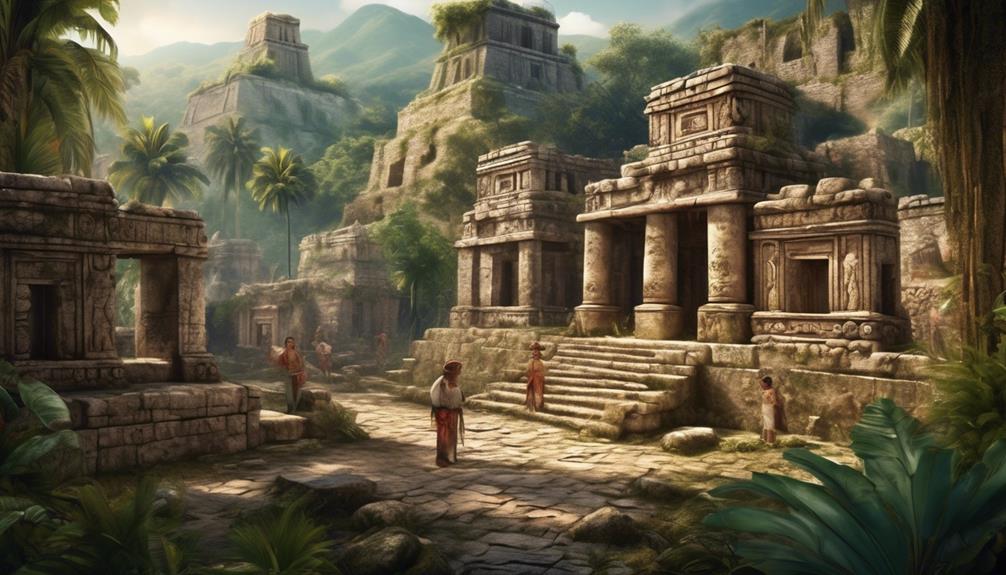Stories have always been a crucial element of indigenous religions, weaving intricate threads into the core of belief systems. What some may not fully grasp is the profound importance these stories carry within indigenous cultures. They are more than just narratives handed down over time; they embody wisdom, tradition, and spirituality.
The ways in which these stories are utilized and revered offer a profound insight into the intricate tapestry of indigenous belief systems, and shed light on the enduring power they hold in shaping the worldview and practices of these communities.
Key Takeaways
- Stories in indigenous religions serve as a means of transmitting cultural knowledge, beliefs, and values through oral tradition.
- They provide a connection to ancestors and spirits, offering insights into cultural heritage and fostering a deep sense of identity and belonging.
- Stories help preserve traditions and values, ensuring they are not lost to time and promoting community cohesion and shared understanding.
- They offer spiritual and moral guidance, teaching compassion, respect for nature, and encouraging contemplation of moral dilemmas and consequences of actions.
Transmission of Cultural Knowledge
In Indigenous religions, the transmission of cultural knowledge plays a vital role in preserving and passing down traditions, beliefs, and values from one generation to the next. The oral tradition is a cornerstone of this process, where stories, myths, and rituals are verbally shared from elders to the younger members of the community. This intergenerational learning isn't only a means of imparting knowledge but also serves as a way of reinforcing the cultural identity and spiritual connection of the community.
Through storytelling, our ancestors have passed down wisdom, history, and spiritual teachings for centuries. The oral tradition allows for the knowledge to be dynamic, adapting to the changing needs of the community while maintaining its core values. Furthermore, this form of transmission fosters a deep sense of belonging and respect for the wisdom of the elders.
It's through these stories that we learn about our place in the world, our responsibilities to the earth, and the significance of our cultural practices. The oral tradition is a living, breathing embodiment of our heritage, and it continues to shape and guide our lives today.
Connection to Ancestors and Spirits
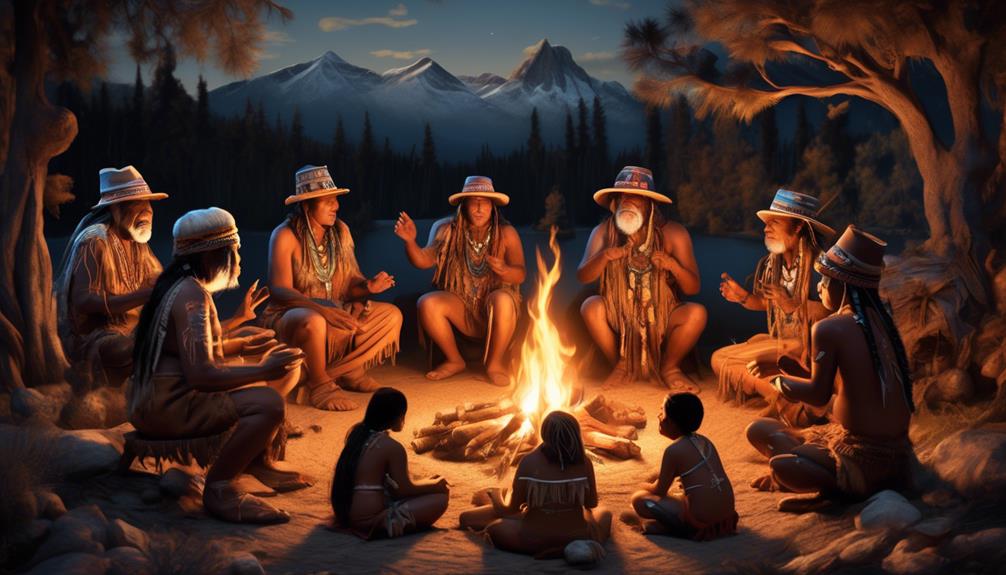
Embedded within the oral tradition, our connection to ancestors and spirits is a fundamental aspect of Indigenous religions, shaping our understanding of the spiritual world and our place within it. The stories and oral narratives passed down through generations serve as a bridge between the past and the present, allowing us to tap into ancestral wisdom and gain insights into our cultural heritage. Through these stories, we learn about the experiences, values, and teachings of our ancestors, providing us with a deep sense of identity and belonging within our communities.
| Ancestral Wisdom | Spirit Communication | Connection to the Spiritual Realm |
|---|---|---|
| Stories carry the accumulated wisdom and knowledge of our ancestors, offering guidance on how to live in harmony with the natural world and each other. | Indigenous stories often depict communication with spirits, whether through dreams, visions, or rituals, serving as a means to connect with the spiritual realm and seek guidance from the unseen forces. | These stories reinforce our connection to the spiritual realm, portraying it as a living, vibrant part of our existence that influences our daily lives and decisions. |
The narratives not only serve as a means of preserving history but also as a conduit for spirit communication, enabling us to seek guidance and understanding from the spiritual realm.
Preservation of Traditions and Values
Preserving our traditions and values is essential to the continuity and vibrancy of Indigenous religions, as they embody the essence of our cultural identity and provide a framework for ethical living.
Our oral storytelling traditions serve as a vessel, carrying the wisdom of our ancestors and the teachings of our spiritual beliefs through generations. These stories encapsulate our values, morals, and customs, ensuring that they aren't lost to time.
Moreover, they foster a deep sense of community cohesion, uniting us in a shared understanding of our heritage and spirituality. Through these narratives, we reinforce the significance of respect for the land, the interconnectedness of all living beings, and the importance of reciprocity within our communities.
Our traditions and values, upheld through the art of oral storytelling, fortify our identity and guide us in upholding the principles that have sustained our people for centuries.
Spiritual and Moral Guidance
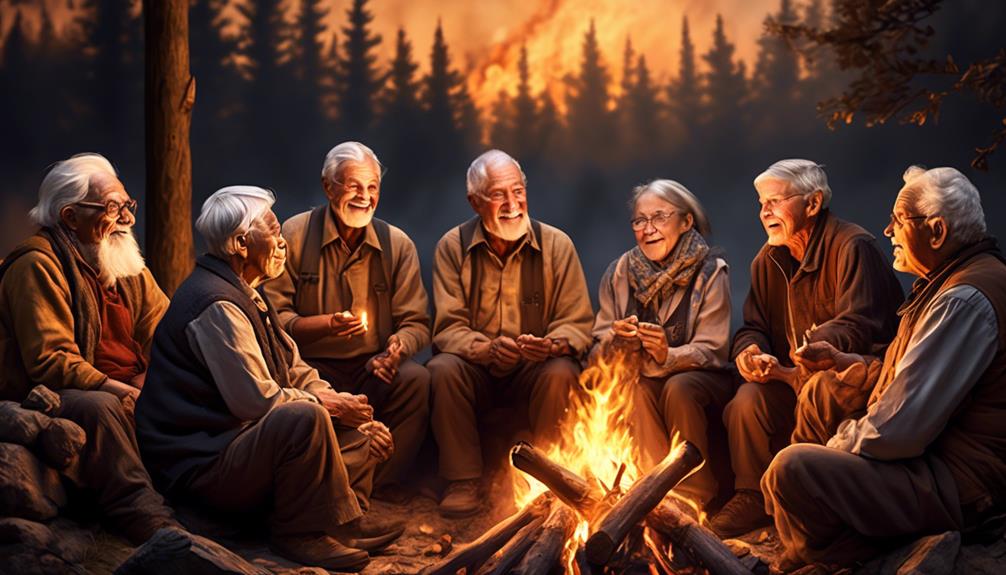
Our oral storytelling traditions not only serve as a vessel for preserving our traditions and values but also provide spiritual and moral guidance that continues to shape our cultural identity and ethical living. Through our stories, we find spiritual reflection, and ethical teachings that guide us in our daily lives. The tales of our ancestors offer profound wisdom, teaching us about the importance of compassion, respect for nature, and the interconnectedness of all living beings. These stories often present moral dilemmas and the consequences of actions, encouraging deep contemplation on the impact of our choices. They provide us with a moral compass, offering insights into the principles of honesty, humility, and reciprocity, which are foundational to our ethical framework. Our oral traditions also offer spiritual reflections, connecting us to the divine, the natural world, and our inner selves. They inspire us to seek harmony and balance within ourselves and with the world around us, fostering a sense of responsibility and stewardship for future generations.
| Spiritual Reflection | Ethical Teachings | Cultural Identity |
|---|---|---|
| Offers insights into the divine and the natural world | Teaches moral principles and the consequences of actions | Shapes our values and ethical framework |
Relationship With the Natural World
The natural world plays a central role in our indigenous storytelling, illustrating our deep interconnectedness with the land, animals, and ecosystems. Our oral tradition is woven with stories that emphasize our interconnectedness with nature, highlighting our role as stewards of the environment. Through our stories, we convey the importance of maintaining ecological balance and living in harmony with the natural world.
- Interconnectedness: Our stories emphasize the interconnectedness of all living beings, portraying the intricate web of relationships between humans, animals, plants, and the environment.
- Ecological Balance: We use stories to impart knowledge about maintaining ecological balance, such as respecting the natural cycles and preserving biodiversity.
- Environmental Stewardship: Our stories instill a sense of environmental stewardship, reminding us of our responsibility to protect and care for the natural world.
Through storytelling, we pass down the wisdom of living in harmony with nature, ensuring that future generations understand the importance of ecological balance and environmental stewardship. Our stories serve as a guiding light, inspiring us to cherish and protect the natural world.
Frequently Asked Questions
How Do Indigenous Stories Vary Between Different Tribes and Cultures?
Incorporating cultural variations, indigenous stories vary greatly between different tribes and cultures.
Oral tradition adaptations play a significant role in shaping storytelling practices within indigenous belief systems.
Each tribe's unique history, environment, and spiritual beliefs influence the content and delivery of their stories.
This results in a rich tapestry of narratives that reflect the diversity and depth of indigenous cultures across the world.
Are There Specific Rituals or Ceremonies That Are Tied to the Telling of Indigenous Stories?
In indigenous cultures, storytelling practices are deeply intertwined with ceremonial storytelling and oral traditions. These stories hold immense cultural significance and are often tied to specific rituals or ceremonies.
The act of storytelling is a sacred tradition, passed down through generations, and is intricately woven into the fabric of indigenous religious practices. Through these oral traditions, our communities uphold and transmit our beliefs, histories, and values, creating a profound connection to our heritage.
How Do Indigenous Stories Influence the Daily Lives and Decision-Making of Community Members?
In our communities, indigenous stories hold immense influence. They guide our daily lives and shape our decision-making. Through these stories, we learn valuable lessons, cultural variations, and ethical guidelines.
They provide a roadmap for navigating challenges and celebrating triumphs. The wisdom embedded in these narratives resonates deeply, helping us understand our place in the world and fostering a profound connection to our heritage.
Are There Any Modern Adaptations or Reinterpretations of Traditional Indigenous Stories?
We've noticed that modern adaptations and reinterpretations of traditional indigenous stories are integral to cultural preservation. These adaptations breathe new life into our storytelling techniques, ensuring that the essence of our narratives endures through time.
What Role Do Elders and Community Leaders Play in the Preservation and Transmission of Indigenous Stories?
In the preservation and transmission of indigenous stories, elders and community leaders play a vital role. Through oral traditions, they impart cultural knowledge, ensuring the preservation of our storytelling heritage.
Elders, with their wisdom and experience, guide the community in upholding these traditions, passing down stories that hold deep cultural significance. Their role is pivotal in safeguarding and perpetuating our rich storytelling traditions for future generations.
Conclusion
In the same way a river flows through the land, stories are the lifeblood of indigenous religions, carrying the wisdom and traditions of our ancestors. They connect us to our past, guide us in the present, and illuminate our path forward.
Like the stars that guide travelers, stories provide spiritual and moral guidance, and remind us of our deep connection to the natural world. Through stories, we find meaning, purpose, and a sense of belonging in the universe.
